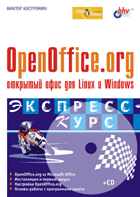In this section, we'll study example programs that make use of rpmlib to
perform an assortment of commonly-required operations.
In this example, we'll use a number of rpmlib's header manipulation
functions.
#include <errno.h>
#include <fcntl.h>
#include <stdio.h>
#include <unistd.h>
#include <string.h>
#include <rpm/rpmlib.h>
|
Here we've included
rpmlib.h, which is necessary
for all programs that use rpmlib.
void main(int argc, char ** argv)
{
HeaderIterator iter;
Header h, sig;
int_32 itertag, type, count;
void **p = NULL;
char *blather;
char * name;
int fd, stat;
|
Here we've defined the program's storage. Note in particular the
HeaderIterator,
Header, and
int_32
datatypes.
if (argc == 1) {
fd = 0;
} else {
fd = open(argv[1], O_RDONLY, 0644);
}
if (fd < 0) {
perror("open");
exit(1);
}
|
Standard stuff here. The first argument is supposed to be an RPM
package file. It is opened here. If there is no argument on the
command line, the program will use stdin instead.
stat = rpmReadPackageInfo(fd, &sig, &h);
if (stat) {
fprintf(stderr,
"rpmReadPackageInfo error status: %d\n%s\n",
stat, strerror(errno));
exit(stat);
}
|
Here things start to get interesting! The signature and headers are
read from package file that was just opened. If you noticed above,
we've defined
sig and
h
to be of type
Header. That means we can use
rpmlib's header-related functions on them. After a little bit of
error checking, and it's time to move on…
headerGetEntry(h, RPMTAG_NAME, &type, (void **) &name, &count);
if (headerIsEntry(h, RPMTAG_PREIN)) {
printf("There is a preinstall script for %s\n", name);
}
if (headerIsEntry(h, RPMTAG_POSTIN)) {
printf("There is a postinstall script for %s\n", name);
}
|
Now that we have the package's header, we get the package name
(specified by the
RPMTAG_NAME above). Next, we see
if the package has pre-install (
RPMTAG_PREIN) or
post-install (
RPMTAG_POSTIN) scripts. If there are,
we print out a message, along with the package name.
printf("Dumping signatures...\n");
headerDump(sig, stdout, 1);
rpmFreeSignature(sig);
|
Turning to the other
Header structure we've
read, we print out the package's signatures in human-readable form.
When we're done, we free the block of signatures.
printf("Iterating through the header...\n");
iter = headerInitIterator(h);
|
Here we set up an iterator for the package's header. This will allow
us to step through each entry in the header.
while (headerNextIterator(iter, &itertag, &type, p, &count)) {
switch (itertag) {
case RPMTAG_SUMMARY:
blather = *p;
printf("The Summary: %s\n", blather);
break;
case RPMTAG_FILENAMES:
printf("There are %d files in this package\n", count);
break;
}
|
This loop uses
headerNextIterator() to return
each entry's tag, type, data, and size. By using a
switch statement on the tag, we can perform
different operations on each type of entry in the header.
}
headerFreeIterator(iter);
headerFree(h);
}
|
This is the housecleaning section of the program. First we free the
iterator that we've been using, and finally the header itself.
Running this program on a package gives us the following output:
# ./dump amanda-client-2.3.0-2.i386.rpm
There is a postinstall script for amanda-client
Dumping signatures...
Entry count: 2
Data count : 20
CT TAG TYPE OFSET COUNT
Entry : 000 (1000)NAME INT32_TYPE 0x00000000 00000001
Data: 000 0x00029f5d (171869)
Entry : 001 (1003)SERIAL BIN_TYPE 0x00000004 00000016
Data: 000 27 01 f9 97 d8 2c 36 40
Data: 008 c6 4a 91 45 32 13 d1 62
Iterating through the header...
The Summary: Client-side Amanda package
There are 11 files in this package
#
|
This example delves a bit more into the database-related side of
rpmlib. After initializing rpmlib's variables by reading the
appropriate
rpmrc files, the code traverses the
database records, looking for a specific package. That package's
header is then dumped in its entirety.
#include <errno.h>
#include <fcntl.h>
#include <stdio.h>
#include <string.h>
#include <unistd.h>
#include <stdlib.h>
#include <rpm/rpmlib.h>
|
As before, this is the normal way of including all of rpmlib's
definitions.
void main(int argc, char ** argv)
{
Header h;
int offset;
int dspBlockNum = 0; /* default to all */
int blockNum = 0;
int_32 type, count;
char * name;
rpmdb db;
|
Here are the data declarations. Note the declaration of
db: this is how we will be accessing the RPM
database.
printf("The database path is: %s\n",
rpmGetVar(RPMVAR_DBPATH) ? rpmGetVar(RPM_DBPATH) : "(none)");
rpmReadConfigFiles(NULL, NULL, NULL, 0);
printf("The database path is: %s\n",
rpmGetVar(RPMVAR_DBPATH) ? rpmGetVar(RPM_DBPATH) : "(none)");
|
Before opening the RPM database, it's necessary to know where the
database resides. This information is stored in
rpmrc files, which are read by
rpmReadConfigFiles(). To show that this function
is really doing its job, we retrieve the RPM database path before and
after the
rpmrc files are read. Note that we
test the return value of
rpmGetVar(RPM_DBPATH)
and, if it is null, we insert
(none)
in the
printf() output. This prevents possible
core dumps if no database path has been set, and besides, it's more
user-friendly.
if (rpmdbOpen("", &db, O_RDONLY, 0644) != 0) {
fprintf(stderr, "cannot open /var/lib/rpm/packages.rpm\n");
exit(1);
}
|
Here we're opening the RPM database, and doing some cursory error
checking to make sure we should continue.
offset = rpmdbFirstRecNum(db);
|
We get the offset of the first database record…
while (offset) {
h = rpmdbGetRecord(db, offset);
if (!h) {
fprintf(stderr, "headerRead failed\n");
exit(1);
}
|
Here we start a
while loop based on the record
offset. As long as there is a non-zero offset (meaning that there is
still an available record), we get the record. If there's a problem
getting the record, we exit.
headerGetEntry(h, RPMTAG_NAME, &type, (void **) &name, &count);
if (strcmp(name, argv[1]) == 0)
headerDump(h, stdout, 1);
|
Next, we get the package name entry from the record, and compare it
with the name of the package we're interested in. If it matches, we
dump the contents of the entire record.
headerFree(h);
offset = rpmdbNextRecNum(db, offset);
}
|
At the end of the loop, we free the record, and get the offset to the
next record.
At the end, we close the database, and exit.
Here's the program's output, edited for brevity. Notice that the
database path changes from
(null) to
/var/lib/rpm after the
rpmrc
files are read.
# ./showdb amanda-client
The database path is: (null)
The database path is: /var/lib/rpm
Entry count: 37
Data count : 5219
CT TAG TYPE OFSET COUNT
Entry : 000 (1000)NAME STRING_TYPE 0x00000000 00000001
Data: 000 amanda-client
Entry : 001 (1001)VERSION STRING_TYPE 0x0000000e 00000001
Data: 000 2.3.0
Entry : 002 (1002)RELEASE STRING_TYPE 0x00000014 00000001
Data: 000 7
Entry : 003 (1004)SUMMARY STRING_TYPE 0x00000016 00000001
Data: 000 Client-side Amanda package
Entry : 004 (1005)DESCRIPTION STRING_TYPE 0x00000031 00000001
…
Entry : 017 (1027)FILENAMES STRING_ARRAY_TYPE 0x00000df3 00000015
Data: 000 /usr/doc/amanda-client-2.3.0-7
Data: 001 /usr/doc/amanda-client-2.3.0-7/COPYRIGHT
Data: 002 /usr/doc/amanda-client-2.3.0-7/INSTALL
Data: 003 /usr/doc/amanda-client-2.3.0-7/README
Data: 004 /usr/doc/amanda-client-2.3.0-7/SYSTEM.NOTES
Data: 005 /usr/doc/amanda-client-2.3.0-7/WHATS.NEW
Data: 006 /usr/doc/amanda-client-2.3.0-7/amanda-client.README
…
Entry : 034 (1049)REQUIRENAME STRING_ARRAY_TYPE 0x0000141c 00000006
Data: 000 libc.so.5
Data: 001 libdb.so.2
Data: 002 grep
Data: 003 sed
Data: 004 NetKit-B
Data: 005 dump
…
#
|
As can be seen, everything that you could possibly want to know about
an installed package is available using this method.
This example is similar in function to the previous one, except that
it uses rpmlib's search functions to find the desired package record:
#include <errno.h>
#include <fcntl.h>
#include <stdio.h>
#include <string.h>
#include <unistd.h>
#include <stdlib.h>
#include <rpm/rpmlib.h>
|
Here we include rpmlib's definitions.
void main(int argc, char ** argv)
{
Header h;
int stat;
rpmdb db;
dbiIndexSet matches;
|
Here are the storage declarations.
if (argc != 2) {
fprintf(stderr, "showdb2 <search term>\n");
exit(1);
}
rpmReadConfigFiles(NULL, NULL, NULL, 0);
if (rpmdbOpen("", &db, O_RDONLY, 0644) != 0) {
fprintf(stderr, "cannot open /var/lib/rpm/packages.rpm\n");
exit(1);
}
|
In this section, we do some argument processing, processing the
rpmrc files, and open the RPM database.
stat = rpmdbFindPackage(db, argv[1], &matches);
printf("Status is: %d\n", stat);
if (stat == 0) {
if (matches.count) {
printf("Number of matches: %d\n", matches.count);
h = rpmdbGetRecord(db, matches.recs[0].recOffset);
if (h) headerDump(h, stdout, 1);
headerFree(h);
dbiFreeIndexRecord(matches);
}
}
|
In this section we use rpmdbFindPackage() to
search for the desired package. After checking for successful status,
the count of matching package records is checked. If there is at
least one match, the first matching record is retrieved, and dumped.
Note that there could be more than one match. Although this example
doesn't dump more than the first matching record, it would be simple
to access all matches by stepping through the
matches.recs array.
Once we're done with the record, we free it, as well as the list of
matching records.
The last thing we do before exiting is to close the database. Here's
some sample output from the program. Note the successful status, and
the number of matches printed before the dump:
# ./showdb2 rpm
Status is: 0
Number of matches: 1
Entry count: 37
Data count : 2920
CT TAG TYPE OFSET COUNT
Entry : 000 (1000)NAME STRING_TYPE 0x00000000 00000001
Data: 000 rpm
Entry : 001 (1001)VERSION STRING_TYPE 0x00000004 00000001
Data: 000 2.2.9
Entry : 002 (1002)RELEASE STRING_TYPE 0x0000000a 00000001
Data: 000 1
Entry : 003 (1004)SUMMARY STRING_TYPE 0x0000000c 00000001
Data: 000 Red Hat Package Manager
…
Entry : 034 (1049)REQUIRENAME STRING_ARRAY_TYPE 0x00000b40 00000003
Data: 000 libz.so.1
Data: 001 libdb.so.2
Data: 002 libc.so.5
Entry : 035 (1050)REQUIREVERSION STRING_ARRAY_TYPE 0x00000b5f 00000003
Data: 000
Data: 001
Data: 002
Entry : 036 (1064)RPMVERSION STRING_TYPE 0x00000b62 00000001
Data: 000 2.2.9
#
|






